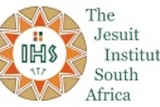South Africa Viewpoint: Truth to Power. Sorry Mr Zuma

President Jacob Zuma has begun to sound more and more like the old apartheid-style leaders BJ Vorster and PW Botha. He has, several times, told church leaders that they “must mind their own business” and rather “pray for their leaders to do better.” His latest comments were made last weekend when he spoke at St. John’s Apostolic Faith Mission Church in Evaton. The South African Council of Churches (SACC) had urged members of parliament to vote to remove Zuma in last week’s no-confidence vote. Zuma claimed that such sentiments were “un-Christian” and that “believers should pray for their leaders to do better.”
Zuma conveniently forgets that during apartheid it was the religious community that assisted individuals, like him, and the liberation movements. He did not complain back then. Church leaders called on the apartheid state to end apartheid, unban the liberation movements, release political prisoners and accept the inevitability of a transition to a democratic, non-racial state. In some cases, clergy actively worked within underground revolutionary structures. There was an ecumenical ANC Religious Affairs Department, in effect a chaplaincy to the Movement.
It was church run schools that provided educational resources and opportunities for those the government of the day refused to educate, including the children in many cases of political prisoners, detainees and banned persons. Church schools were at the forefront of defying the government and allowing children of all colours into their establishments. In 1977, the government ordered racially integrated Catholic schools to expel non-whites. The church refused. It was often churches who ran clinics and hospitals in far flung rural places.
Religious buildings were used for meetings to mobilize people and, at times, as sanctuaries for people fleeing from the brutality of apartheid security forces. The Catholic Church of Regina Mundi in Soweto still bears the scars inflicted by apartheid police on its walls. The headquarters of the Southern African Catholic Bishops’ Conference, in Pretoria, was bombed by apartheid security forces in opposition to their criticism in 1988.
Many religious leaders, like Catholic Archbishop Denis Hurley, Anglican Archbishop Desmond Tutu and Dutch-Reformed minister Beyers Naudé, did not keep quiet when the majority of South Africa’s people were oppressed and suffered untold injustice. Why should church leaders suddenly “mind their own business” now?
Chair of the SACC, Bishop Malusi Mpumlwana, recently told Parliament’s Committee on Social Enterprises that the churches “… never did in the past, cannot today and will not in the future, refuse to address national issues in relation to public ethics, be it the unethical apartheid or unethical corruption, greed or the usurpation of State institutions for private benefit and against the public good.”
Religious leaders have a long history of speaking truth to power. The rich history of the Judea-Christian prophetic tradition teaches us how to hold people in civil authority accountable. The confrontational attitude of Jesus of Nazareth to Roman authorities and the collaborationist religious establishment in first century Palestine, should convince even the most theologically illiterate of this important ministry.
It is the business of religious leaders to call those in power to account. We have a moral obligation. We must speak. We will speak. Like it or not. Sorry Mr Zuma.
Follow Russell Pollitt SJ on twitter @rpollittsj


















